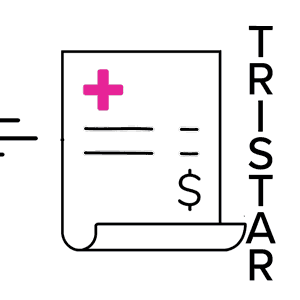Tristar: 16,459 Audit Complaints Filed

For all its complexity, California workers’ comp has one very simple law: if a doctor chooses to send bills electronically, the claims administrator must accept that doctor’s e-bills. Period.
Yet in 2022, third-party administrator (TPA) Tristar Risk Management refused to accept e-bills on behalf of its employer clients over 16,000 times. At the peak of its non-compliance, Tristar refused to electronically accept 83% of bills submitted by daisyBill providers in the month of November.
Today, daisyBill submitted 8,188 formal Audit Complaints to the Division of Workers’ Compensation (DWC), with hard data demonstrating Tristar’s apparent business practice of disregarding California law. In total, daisyBill has submitted 16,459 Audit Complaints, which together practically beg for appropriate consequences.
Employers, consider carefully whether your TPA is taking care of the doctors who take care of your injured employees. California mandates e-bill acceptance to better facilitate care. Tristar ignores that mandate on behalf of many of its employer clients, who may or may not be aware of how the TPA is representing their organizations.
Tristar’s Pattern of Non-Compliance
In August 2022, we revealed how Tristar and its e-billing clearinghouse, Jopari, make it extraordinarily difficult for providers to electronically send workers’ comp bills to Tristar. Specifically, the TPA fails to maintain the necessary electronic connections for e-bill transmission to all of its employer clients.
Also in August, Tristar lost the City of Los Angeles as a client, an employer for whom Tristar compliantly accepted e-bills (kudos to LA for generally ensuring that doctors’ e-bills are accepted and processed compliantly). With the City of LA’s departure, Tristar’s overall e-bill non-acceptance rate skyrocketed — jumping from 37% to over 71% month-to-month.
As the data below clearly demonstrates, Tristar simply ignores a California law that has been effective for over 10 years.
Bills Sent To Tristar in 2022 |
Count |
Bills sent to Tristar by daisyBill Providers |
36,144 |
Bills Tristar failed to accept electronically |
16,460 |
Percentage of bills Tristar failed to accept electronically in 2022 - 46%
Further, since August, it appears that Tristar has boldly embraced the practice of thumbing its nose at laws designed to make it easier for doctors to treat injured workers. Below, the data demonstrates that with the departure of the City of Los Angeles in August, Tristar’s monthly rate of e-bill non-compliance escalated to a peak of 83%.
Monthly Percentage of Bills Tristar Failed to Accept Electronically
Jan |
Feb |
Mar |
Apr |
May |
Jun |
Jul |
Aug |
Sep |
Oct |
Nov |
Dec |
33% |
38% |
32% |
34% |
38% |
36% |
37% |
71% |
77% |
79% |
83% |
79% |
e-Billing works beautifully, but only if insurers, employers, and TPAs participate as required by state law.
There are hundreds of workers’ comp payers in California, and it is entirely unreasonable to expect doctors to maintain multiple administrative billing workflows based on payers’ willingness — or lack thereof — to comply with a basic billing law.
Each instance of Tristar’s refusing to accept bills electronically adds to the administrative and financial burden that plagues workers’ comp doctors across California. This burden is what can make it so difficult for injured workers to find care; many doctors conclude that limiting or eliminating workers’ comp patients is the only way to protect the practice’s financial health.
In other words, if doctors cannot rely on timely payment without costly friction, employers cannot rely on doctors to take workers’ comp patients.
Tristar and its dismal performance are emblematic of California workers’ comp’s broader problem. Without real consequences, commensurate with the severity of their non-compliance, TPAs and other claims administrators will have little reason to uphold their end of the e-billing mandate.
Providers, injured workers, and employers will ultimately bear the cost of this chaos — as they have for years, to devastating effect.
Workers’ comp can work for providers. daisyBill software, data, and expertise makes billing easier, faster, and less costly. Request a free demonstration below.
REQUEST DEMO
DaisyBill provides content as an insightful service to its readers and clients. It does not offer legal advice and cannot guarantee the accuracy or suitability of its content for a particular purpose.


.gif)


